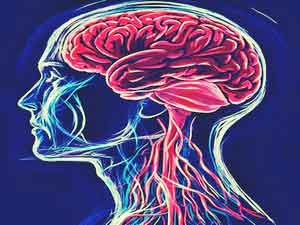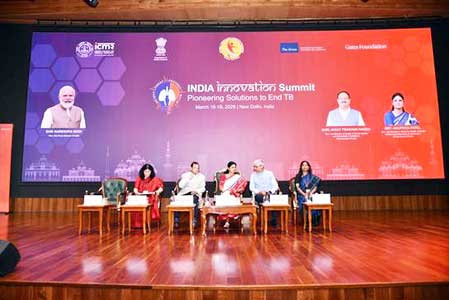US researchers have identified how bacteria hijack crosstalk between nerve and immune cells to cause meningitis, a highly fatal brain disease.
The team led by researchers at Harvard University in a mice study showed that bacteria exploits nerve cells in the brain's protective layers -- the meninges -- to suppress the immune response and allow the infection to spread into the brain, or meningitis.
"We've identified a neuroimmune axis at the protective borders of the brain that is hijacked by bacteria to cause infection -- a clever manoeuvre that ensures bacterial survival and leads to widespread disease," said Isaac Chiu, Associate Professor of immunology in the Blavatnik Institute at Harvard Medical School (HMS).
The study, published in the journal Nature, identified two central players in this molecular chain of events that leads to infection -- a chemical released by nerve cells and an immune cell receptor blocked by the chemical.
The study experiments show that blocking either one can interrupt the cascade and thwart the bacterial invasion.
If replicated through further research, the new findings could lead to much-needed therapies for this hard-to-treat condition that often leaves those who survive with serious neurologic damage.
Such treatments would target the critical early steps of infection before bacteria can spread deep into the brain, the researchers said.
"The meninges are the final tissue barrier before pathogens enter the brain, so we have to focus our treatment efforts on what happens at this border tissue," said Felipe Pinho-Ribeiro, Assistant Professor at Washington University in St. Louis.
More than 1.2 million cases of bacterial meningitis occur globally each year, according to the US Centers for Disease Control and Prevention (CDC).
Untreated, it kills seven out of 10 people who contract it. Treatment can reduce mortality to three in 10.
However, among those who survive, one in five experience serious consequences, including hearing or vision loss, seizures, chronic headache, and other neurological problems.
Current therapies -- antibiotics that kill bacteria and steroids that tame infection-related inflammation -- can fail to ward off the worst consequences of the disease, particularly if therapy is initiated late due to delays in diagnosis.
Inflammation-reducing steroids tend to suppress immunity, weakening protection further and fuelling infection spread.
Thus, physicians must strike a precarious balance: They must rein in brain-damaging inflammation with steroids, while also ensuring that these immunosuppressive drugs do not further disable the body's defences, the researchers said, stressing on the need for new treatments.






Shutdown called to observe two years of ethnic conflict in Manipur cripples life
Normal life was badly affected in Manipur on Saturday as a shutdown was called by various groups to mark two years of ethnic conflict in the state. However, according to the police officials, the shutdown is peaceful so far in both the valley and hill districts.
21 MLAs urged PM, HM to reinstate govt in Manipur bypassing Guv: Congress
The Opposition Congress on Wednesday slammed 21 MLAs of Manipur for bypassing the state Governor and writing letters to the Prime Minister and Union Home Minister, urging them to reinstate a popular government in the state.
Air pollution exposure raises brain stroke risk in older adults: Study
The study showed that elderly males are disproportionately affected by ischemic stroke related to air pollution. Ischemic stroke is a condition resulting from reduced blood supply to specific areas of the brain due to blocked blood vessels. The primary contributor to this burden is PM2.5 from air pollution.
Security forces apprehend 7 militants in Manipur, recover arms and stolen cars
Security forces in Manipur arrested seven militants belonging to different banned outfits from Imphal East and Imphal West districts, officials said on Friday.